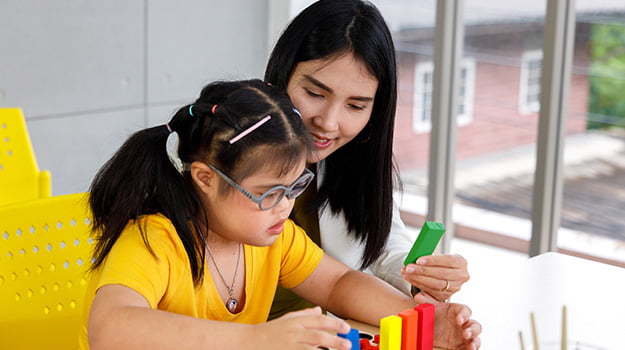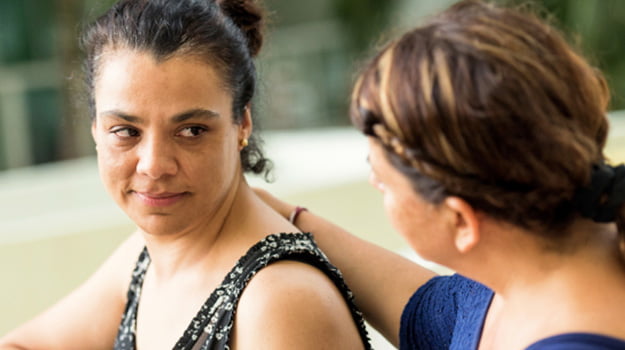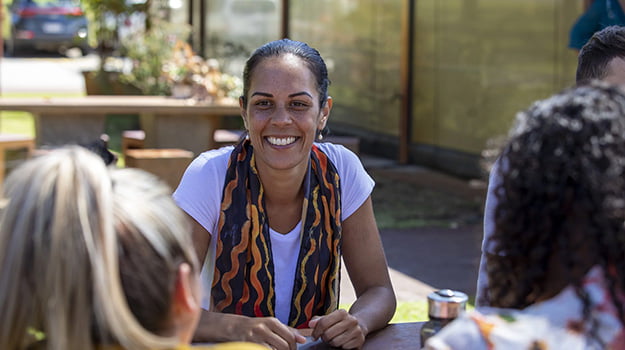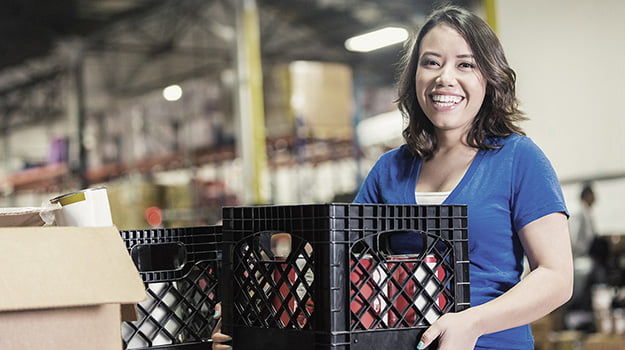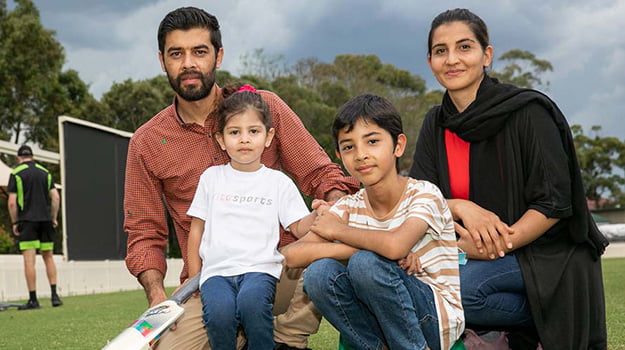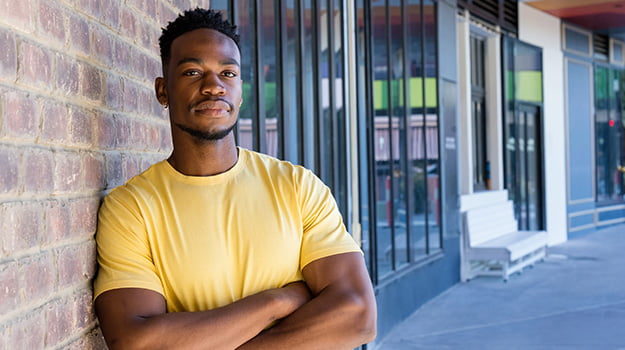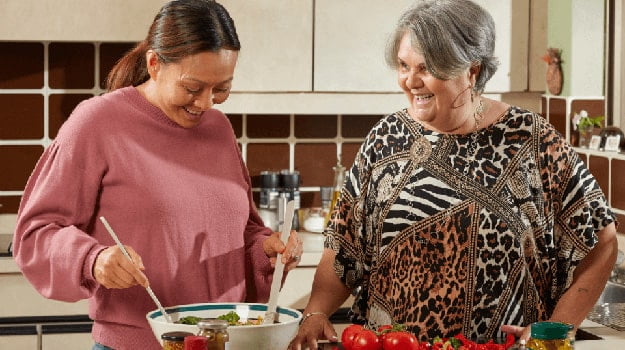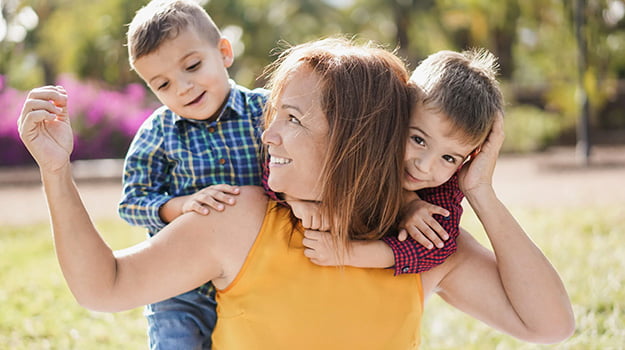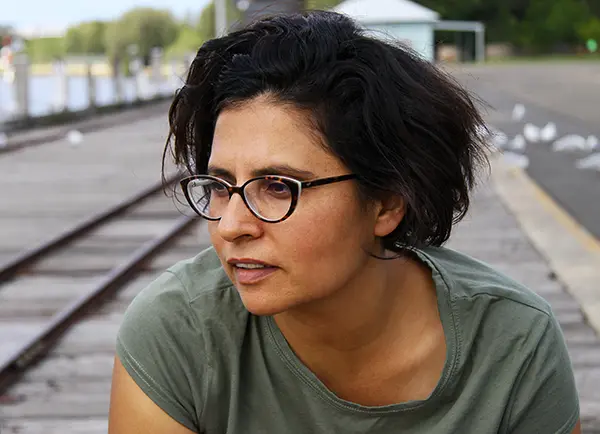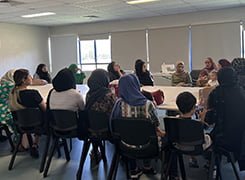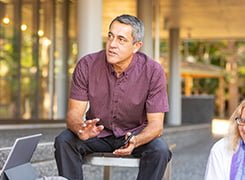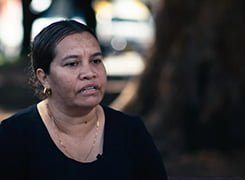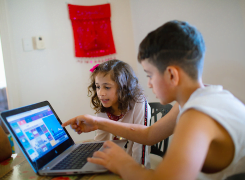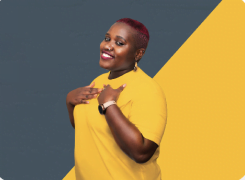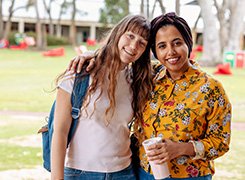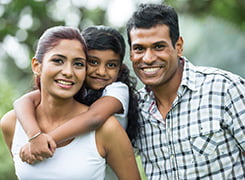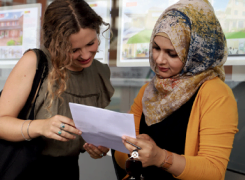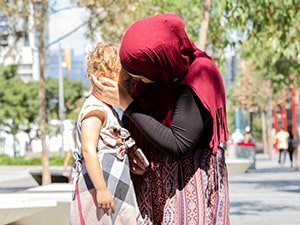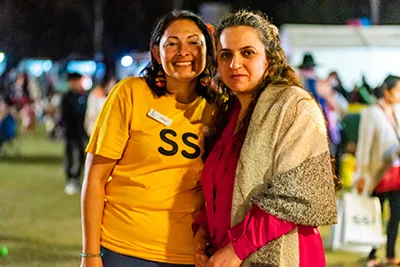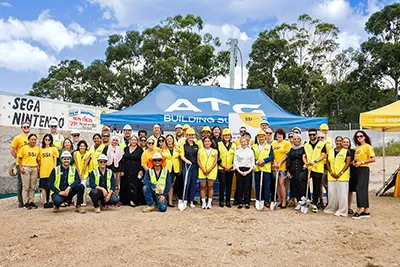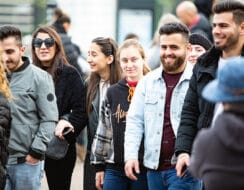03 Dec 2020
Media releasesNew research finds that Australia’s refugees are settling well
The settlement experiences of 133 Syrian, Iraqi and Afghan refugee families living in NSW are examined in a new report, which highlights the importance of English language training and other support programs to ensure refugees have a great start to their new life.
The report shows the refugees feel safe in their new home and accepted by their neighbours, as well as thankful to Australia for taking them in. They are also optimistic about their future and their children’s prospects, and they are keen to become Australian citizens.
The research is a collaboration between the University of Technology Sydney (UTS), Western Sydney University and University of Sydney Business School, in partnership with Settlement Services International (SSI).
“Our research shows that by most subjective and objective economic and social indicators, the settlement outcomes of this refugee intake were very successful,” said UTS Professor Jock Collins, who co-authored the report with Professor Carol Reid from Western Sydney University and Associate Professor Dimitria Groutsis from Sydney University.
“Refugees make a significant economic and social contribution to the state. The cut to the annual Australian refugee intake by 5000 people a year, announced in the 2020 federal budget, appears short-sighted and ideological rather than evidence-based,” he said.
The report is based on interviews conducted in 2018 with 54 families from Syria, 56 from Iraq and 23 from Afghanistan who settled in NSW locations including Auburn, Fairfield, Liverpool, Parramatta, Coffs Harbour and Wollongong.
It is part of a broader three-year research project, which encompasses a longitudinal survey of 233 refugee families who settled in NSW, Queensland, and Victoria, funded by an Australian Research Council Linkage grant.
The families from Syria and Iraq were mostly Christian while the refugees from Afghanistan were Muslim. Those from Syria and Iraq were part of the Australian government’s one-off increased humanitarian intake in response to the Syrian war, with most families arriving in 2017.
The report finds that 36 per cent of the Iraqi and Syrian refugees held a tertiary education degree and many had professional backgrounds as engineers, pharmacists, doctors, dentists and architects. However, gaining recognition for their qualifications was a significant barrier to employment.
In contrast, most of the adult Hazara refugees from Afghanistan, including many women at risk, had been denied education and employment opportunities by the Taliban and arrived with very little education.
Around 88% of the adult refugees interviewed in 2018 had not yet entered the labour market because they were engaged in English-language training or caring responsibilities. English language competency was seen as the biggest hurdle in accessing employment.
“The refugees we interviewed were keen to start working as soon as possible to feel a sense of self, to rebuild their lives in Australia and as a way of repaying Australian society for providing safe refuge for them and their families,” said Professor Collins.
Settlement service providers met the refugees at the airport and helped them find accommodation, enrol their children in school and navigate the many other challenges encountered in the first six months.
The refugees interviewed were generally full of praise for these services and some even named their Australian born children after their case-workers.
Violet Roumeliotis, CEO of service provider SSI, said, “I welcome this report, not least because many of the findings reinforce our own experience working with refugees: they underscore the diversity of refugee experiences, highlight the entrepreneurial spirit of refugees, and show that refugees feel they are welcome and belong to Australia.”
While the outcomes presented in this report are from 2018, the families were revisited in 2019 and are being visited a final time in 2020. Findings from these later interviews will be included in a final report in 2021.

